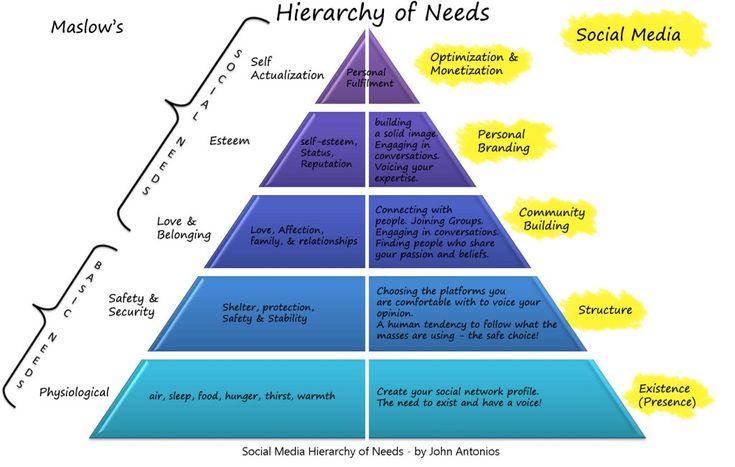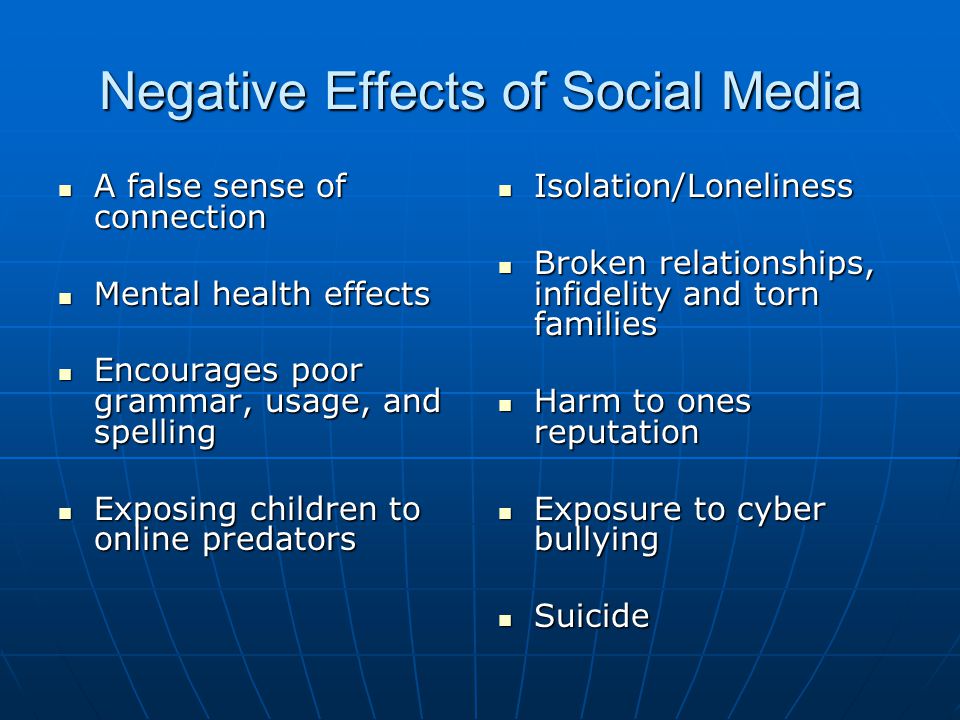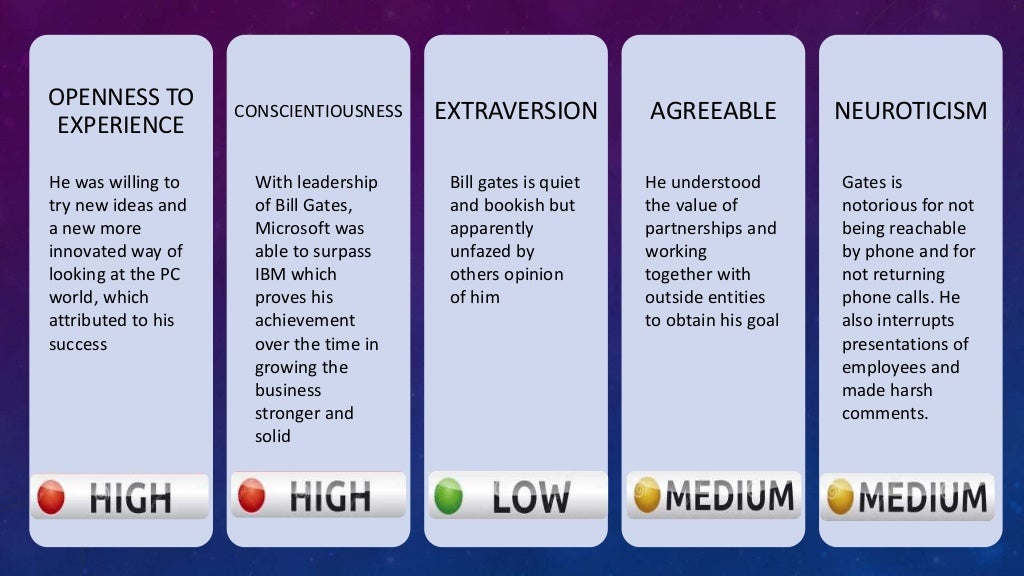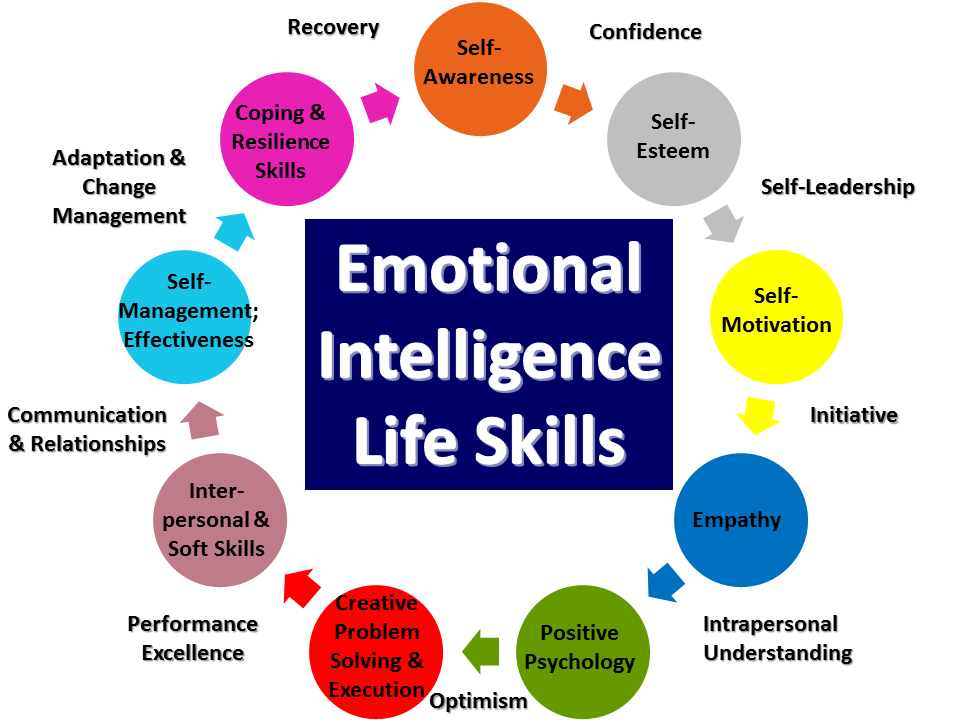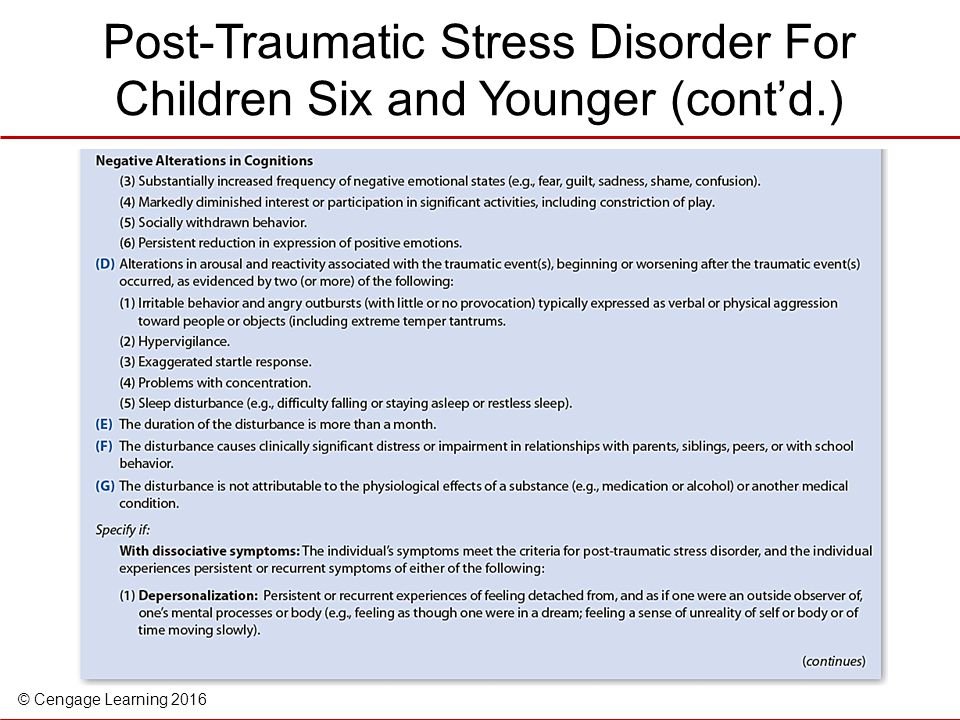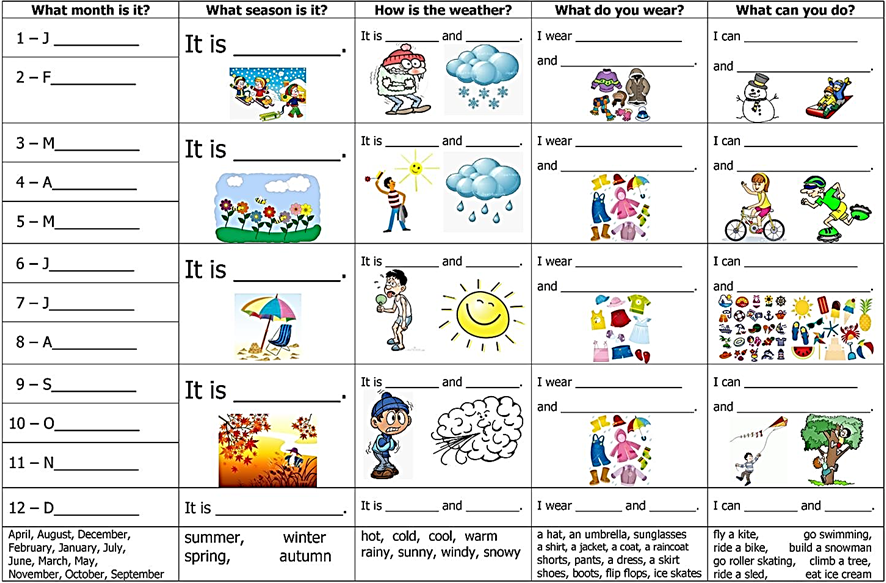Social media marketing for introverts
Social Media Marketing for Introverts — Unsocially Inclined
Social media marketing got you burnt out and feeling inauthentic? Here are a few ways to organize your energy.
Dear Introvert Entrepreneur friend,
Do you love social media, just not… for business?
Or do you hate social media and REALLY don’t want to use it for your business? (same difference…)
Yes, we all as a society consume social media, but as introverts, we don't always like to put ourselves on the platforms.
It can feel like a lot of small talk at too high of a cost. Putting all our eggs in multiple baskets and spreading ourselves thin is… not fun.
There’s too many hidden costs and strings attached when it comes to making social media accounts do the work for us.
To run a business, we have to interact with people and convince them to give a sh*t about us?
To run a business, we have to exploit our social networks to make sales and hit benchmarks?
To run a business, we have to do away with our privacy to use Instagram to pour our hearts out about our ‘personal success stories as a marketing tool?
Here at Unsocially Inclined, we don't think you NEED social media to be successful, but we recognize the value it has.
It's accessible and a great place to test things, but it can also be draining and distracting.
It can be intimidating, even more than a *gulp* face-to-face interaction, to use social media marketing. But we have some introvert-friendly tips ready for you because you can use it, your way, without letting it mean more about what you’re doing and who you are.
Choose the social media platform(s) you want to give your energy to.And you don’t have to be on everyone!
Contrary to popular advice, you don't need to be everywhere to succeed in the online market. The best mix is a platform you enjoy and potential clients are using.
The key is to conserve your energy. When we enjoy ourselves, posting feels more effortless. If Instagram isn’t your thing, try Facebook. Try LinkedIn. Try Tik Tok. Don’t feel like you have to change up your style for everyone.
Chances are, the clients who would rather buy your style of product anyway are on those platforms, since they each have a personality.
Make a list ranking each platform and its pros and cons.
And don’t be afraid to shop around and see how other people use those platforms (even your “competition”!) and do a lot of reflecting. Find the best way to do things for yourself.
Related: Video Marketing for Introverts
Choose what content you share and what you save for yourself.Yes, social media is a place where people like to share, and for private people that can be challenging. But also, there are parts of you that aren’t too taboo. There will always be certain opinions you enjoy giving out or certain observations you have less resistance to.
Decide what you'll share there, and what's off-limits. There are so many topics to choose from that align with the business objectives that don’t have to involve you spilling information you don’t want to.
If you can define your boundaries, it’ll help you maintain your introverted sanity.
A boundary is both about what isn’t permissible and what’s permissible.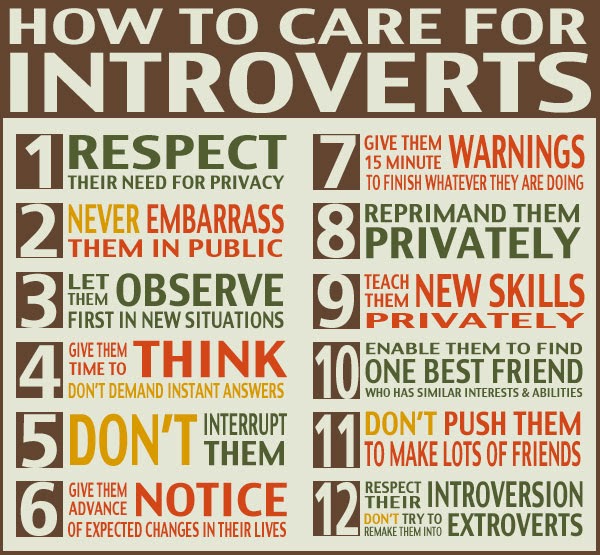 A little stretching is always good for our comfort zones (and often necessary for business).
A little stretching is always good for our comfort zones (and often necessary for business).
But you don’t have to surrender everything. You just have to figure out how you like to relate to others.
Look at what’s already out there too. What is someone’s posting style that doesn’t feel like “oversharing” that you admire? We’re influenced by what’s around us, but we can also control what we want to be influenced by. You and the people you admire both have permissible areas and limits too.
And remember: these limits can change! Just as our preferences can also….
Embrace the fleeting nature of social media and the need to change up your strategy.Lots of marketers use social media as a place, and a marketing tool, to test things for more high-risk platforms. Ya know, email marketing (that often costs money), or ads, or event marketing.
Social media can be a place to sell, but it also is a place to see how your content and messaging lands with people before it costs you more.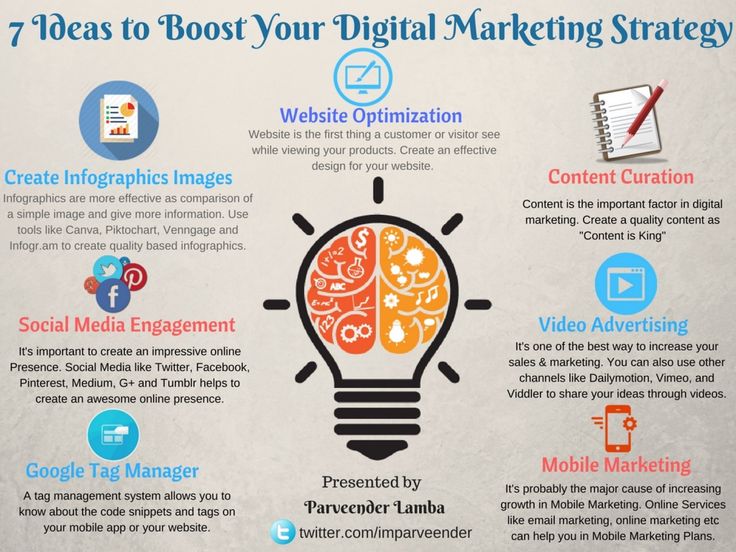
Paying attention to your analytics and having the testing ground of social media for more data can tell you vital things about what’s working and what’s not.
It also gives you the most access to your audience that might otherwise not open their emails, but would “heart” your Instagram post.
And if one post doesn’t do well, you can try again with another.
If you can part the degree of investment (financially, emotionally, or otherwise) you have in platforms for your business, down to social media being hopefully the least priority, it will work for you.
If you don't have the energy to jump on the latest trend, you don't have to.
Save your energy for what's working already… by paying attention to what’s been working over the next trend!
Don’t burn social media time if it feels unproductive to you (not someone else’s strategy). Get creative about how to rework what’s working already.
And scrap what feels unaligned. You’ll just use that free space for what is aligned, in return.
There's no shame in asking for help if social media isn't your thing, but you know it helps your business.
Other people have zones of genius that specialize in this.
Once your business makes a substantial amount of money, consider a social media VA or agency to help you grow.
It will take the stress and pressure of cold-DM-ing off.
And help you feel more organized with a strategy.
As an introvert, it’s important for you to figure out what works for you. With so much internal processing going on, we have to keep it all organized.
The more reflection you do generally, the more you can leverage the social media platforms that are working and feel less strenuous.
When it’s so hard to interact with people as an introvert, we have to do it smarter.
8 Easy Social Media Marketing Tips for Introverts [+Best Apps]
Social media marketing isn’t easy, and it’s even more challenging for introverts.
Up to 50 percent of people consider themselves introverts. Sometimes considered antisocial, the truth is that many introverts enjoy social activities but find them exhausting — where an extrovert might gain energy from being in a big crowd, introverts need time to recover and recharge.
For introverted entrepreneurs and small business owners, this poses a challenge: With social media a key component in brand building, how do they manage the demands of social interaction with the need to take care of their own mental health?
In this piece, we’ll offer eight easy tips to help improve your social media marketing (without losing your sanity) and four great apps to help you get the job done.
Social Media for Introverts
For some introverts, the control offered by social media makes it a better choice than face-to-face interaction. For others, the constant “noise” of social sites is overwhelming. The important thing to remember? Whether you love or loathe social media, the most important thing is finding a social marketing strategy that works for you.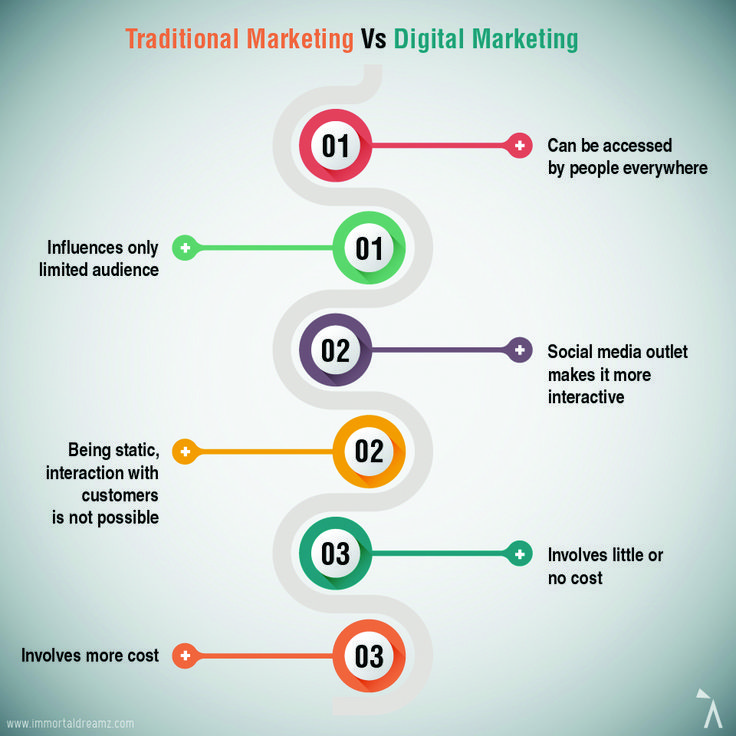
Social Media Tips for Introverts
1. Create a social calendar.
It’s easy for introverts to get overwhelmed with the sheer number of social posts, replies, and activities required to build a personal or business brand. But given that these connections are critical to boost your public profile and help drive new career opportunities, they can’t be ignored.
Best bet? Start by creating a social calendar that maps out what you’re going to post, where, and when to help make sense of social media efforts. Using a calendar also gives you more opportunity to be socially spontaneous if you’ve got the energy, since your posts are already penciled into your calendar.
Not sure where to get started? Check out HubSpot’s Social Media Content Calendar Template.
2. Pick and choose your people.
The great thing about social media is how it offers connections to so many people — and the terrible thing about social media is that it offers connections to so many people.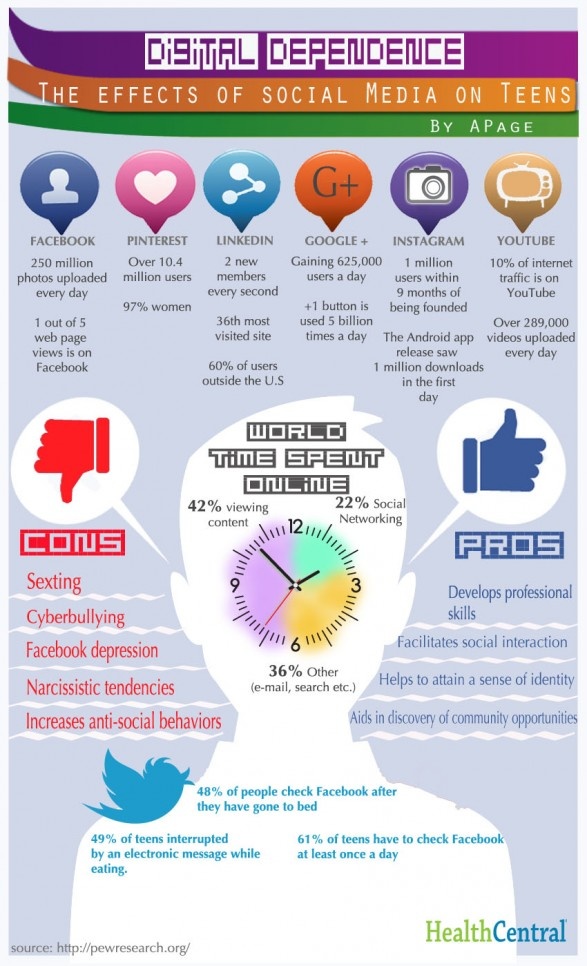
This is the case for many introverts; what starts as a great way to connect turns into a continual avalanche of opinions and ideas that’s hard to navigate and even harder to manage. As a result, it’s worth regularly assessing your social media feeds and curating who you follow. While you don’t want to create an echo chamber that cuts off your ability to build brands outside narrow circles, there’s nothing wrong with being choosy about who you follow and why.
3. Schedule social posts.
Despite best efforts, you’ll still get overwhelmed from time to time. That’s OK — and it’s important to take a break and recharge your batteries. The challenge? While introverts are resting up, they’re often still worried about what they’re missing on social media.
To help solve this problem, opt for an app that lets you schedule social posts at the time of your choosing. That way, you can confidently take breaks knowing that you’re still delivering content.
4. Find a matching platform.
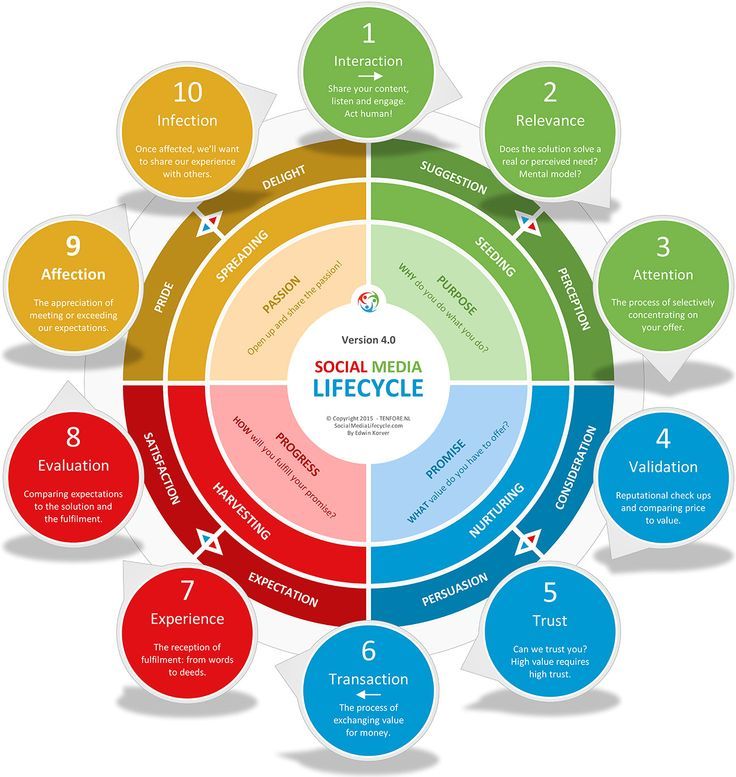
Facebook is great for larger conversations, LinkedIn works well to connect with specific people, Twitter offers space for quick-fire interactions, and Instagram is all about images.
Chances are, you have a preference: Maybe you like the quieter atmosphere of LinkedIn, or maybe posting pictures makes it easier to feel connected with your audience. While it’s important to keep your social avenues open, there’s nothing wrong with investing more time in the platform that best suits your style, since you’ll be more productive over time.
5. Curate your content.
Not everything needs to be posted on social media. While sharing details about yourself and your life can help grow a social following and in turn bolster your business efforts, you need to draw a line between personal and professional posting.
In practice, this means deciding what content you post and what you keep private. There’s no right answer here — the key is setting boundaries that work for you so that you feel comfortable about what you’re sharing and secure in what you keep to yourself.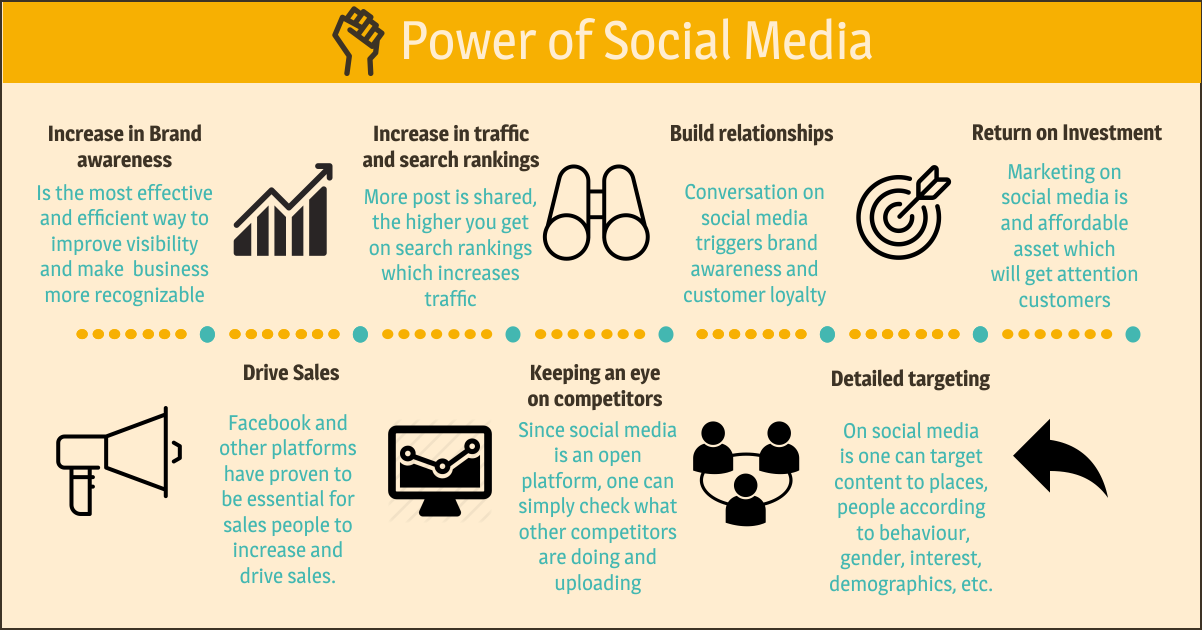
6. Track your social media metrics.
Social media metrics help you see what’s working and what isn’t, and come with the benefit of letting you take a break from people. Rather than reaching out to see why connections haven’t engaged with your brand or aren’t viewing your content, leverage data tracking and analytics tools to see where you’re losing interest. These metrics help you build out a better strategy and let you do it in peace and quiet.
7. Opt for one-on-one interactions.
Introverts are often incredibly engaging and social — when it comes to one-on-one interactions. Consider a party with hundreds of people all having a good time. Many introverts will seek out a single individual or small group and set up camp, rather than trying to mingle.
This approach also works for social media. As people make comments on your posts, consider reaching out with a direct message to strike up a conversation. These one-on-one conversations can let you shine socially without the need to navigate multiple interactions simultaneously.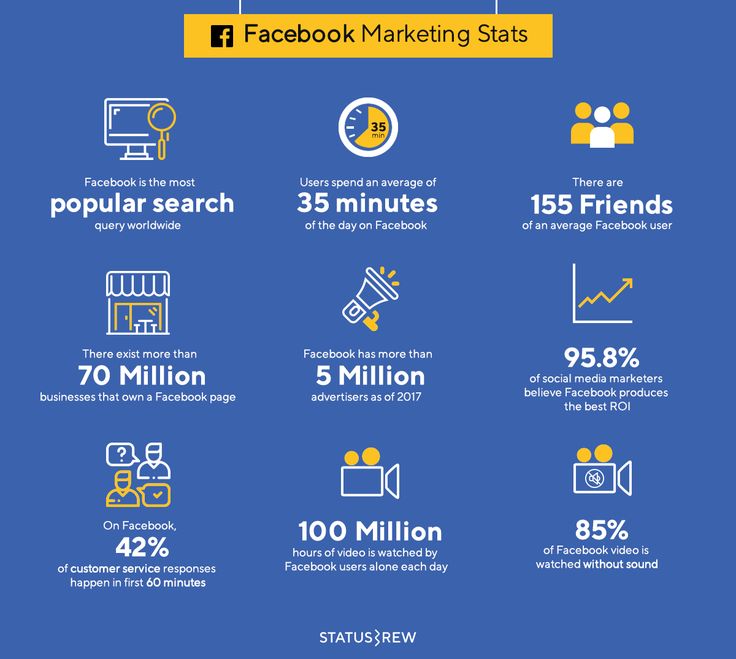
8. Hire help as needed.
If social media marketing simply isn’t in your wheelhouse, consider hiring help. The complex and evolving nature of social platforms has created a market for social specialists capable of directly targeting your key audience segments and curating your social calendar. In much the same way that you might hire an accountant to manage your business finances, you can now tap social media expertise to streamline the process.
Best Social Media Apps for Introverts
1. Google Analytics
When it comes to metrics, you can’t go wrong with Google Analytics. The app lets you track which of your posts have been shared and on which platform, in turn helping you develop a more focused social media strategy.
You can also use Google Analytics to identify potential weak points in your current efforts. Are there certain platforms where you’re not reaching engagement goals? Are specific post types outperforming others? This data sets the stage for better interactions.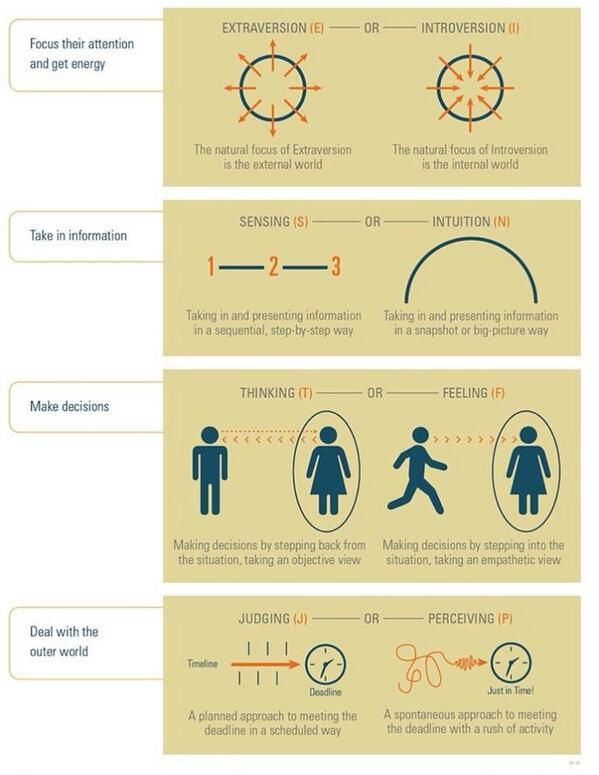
2. Buffer
Buffer lets you easily evaluate social media performance, schedule posts, and respond to comments ASAP.
With just a few clicks, you can schedule posts on the platform you prefer at the time of your choosing, freeing up your time to create new campaigns or build new content. Using labels and hotkeys, meanwhile, you can quickly pinpoint comments on your posts that need immediate attention so you don’t miss a customer concern or a new connection opportunity.
3. Adobe Creative Cloud Express
Formerly Adobe Spark, Creative Cloud Express provides the power of pictures with thousands of pre-built content templates. Easily make standout graphics, logos, and photo collages to showcase your brand or highlight your mission, and then posts these images on the platform of your choice.
Available for iOS, Android, and for desktops, you get full access to the app for 14 days for free — after that, you’ll need a Creative Cloud subscription.
5. REP
Love the impact of influencer marketing, but don’t like the idea of cold-calling influencers to work with you? REP has you covered. This influencer marketplace lets you post job opportunities, connect with potential influencers, and negotiate terms, all from the app.
This influencer marketplace lets you post job opportunities, connect with potential influencers, and negotiate terms, all from the app.
It’s a great choice for introverts who want to leverage the power of social media but want to keep the number of uncomfortable interactions to a minimum.
Solving for Social Media Marketing Stress
There’s no way around it: Introverts will always find social media stressful. But it’s still a powerful tool in your arsenal, and with the right approach, it’s possible to strike a balance between building a public presence and protecting your private life.
Best bet? Prioritize where and what you want to post, and make sure to take regular breaks. Push yourself to do better, but recognize that introversion isn’t a problem to solve but rather a different approach that lets you cultivate more direct and in-depth, one-on-one connections.
Editor's note: This post was originally published in April 2009 and has been updated for comprehensiveness.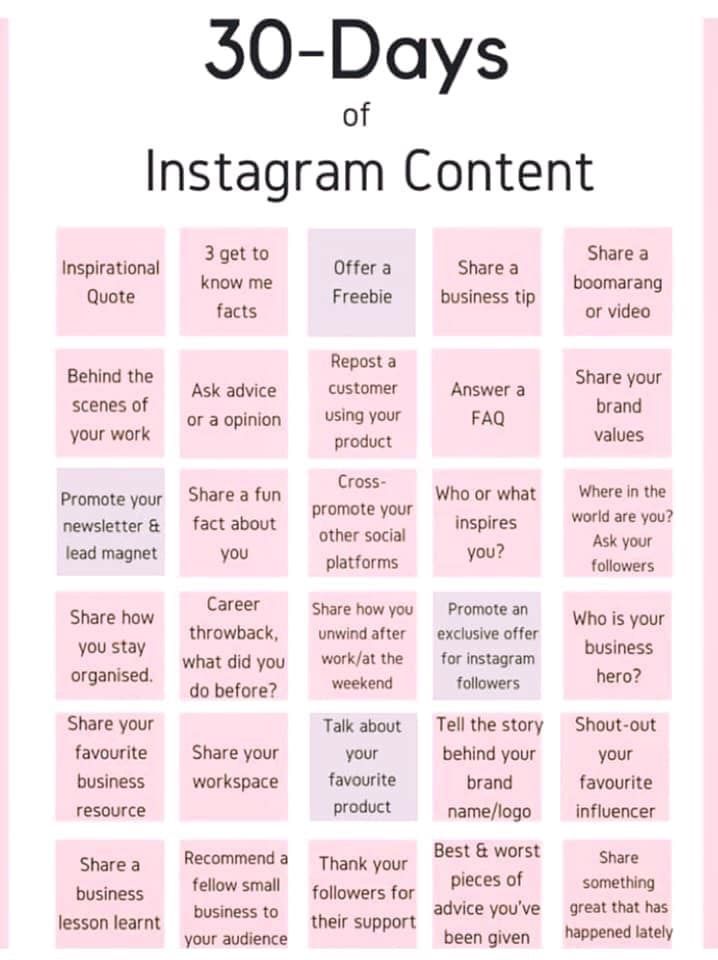
PR tips, social media crisis and introverts in the world of PR - Marketing on vc.ru
And a little more about digital marketing and communication with millennials.
Communication trends: a view from abroad, 11/14/2019
1972 views
Digest prepared by iMARS Communications.
Seven tips for success in PR
We live in an era of "fake news". While trust in PR is higher than in related marketing industries, trust in every sector is lower than ever. In any business, trust is essential and increasingly difficult to earn. During my years in the industry, I have learned many life lessons that can help any PR professional or business leader deal with the current situation.
Warren H. Cohn, CEO and founder of HeraldPR (USA)
Seven tips on how to succeed in PR today.
1. Make your way through the wall.
Every sale, story, and challenge you face is another brick wall you need to break through. To succeed in the industry, you cannot back down and let obstacles stand in your way. Your attitude will make a huge difference to your employees, your connections, and your customers.
To succeed in the industry, you cannot back down and let obstacles stand in your way. Your attitude will make a huge difference to your employees, your connections, and your customers.
2. Help others. Help yourself.
Be honest. "Earned" media (Earned media) require it. This is the most important piece of advice a PR professional can give or receive today. In any business, the better you do, the more you get recognized. In addition, the modern PR world requires you to deliver accurate messages in order to gain their trust and maintain your credibility.
3. Make personal connections.
Personal connections are important in any business, but for PR this is a very important requirement. You must put technology aside to connect with customers, media sources, and the public. People don't trust bots and automated messages. On the contrary, personal relationships are an effective way to overcome the barrier of trust.
4. Promise less.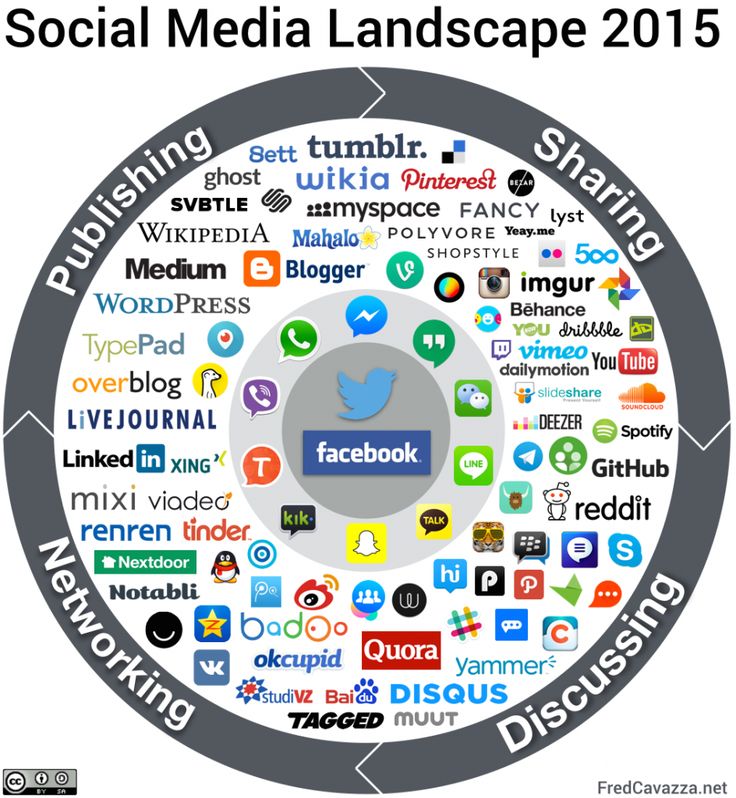 Do more.
Do more.
You can promise one result. And if you manage expectations, you can double your promises. Don't overvalue your business or your clients' business. When you go beyond the expected, you deliver a message to your customers and the world that you can be trusted.
5. Provide.
Give people what they need before they ask for it. Do not wait for new questions or assignments. Think ahead. The more the world sees your customers, the more it will trust them.
6. Take a closer look. Look wider.
Focus on what matters. In all industries, leaders face many challenges. To be successful, you must be able to recognize important topics and prioritize. For example, sometimes the delivery of a message is more important than the wording itself.
7. Do a good job. Have a good time.
It is very important to balance stress with rest. If you take on too much and burn out, you won't help yourself, your customers, or your business.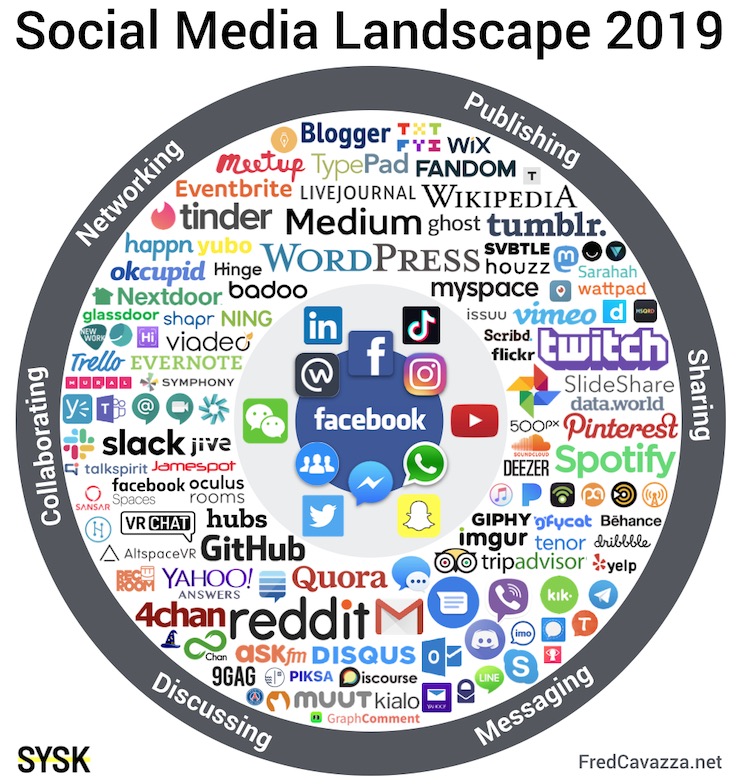 This is the most valuable advice.
This is the most valuable advice.
What do consumers expect from brands during a crisis?
Is your brand ready for a crisis, as your executives might think? With over half of consumers (54 percent) reporting that they use social media more than six times a day, information - real or fake - can spread like wildfire. And to make matters worse, Crisp's new social media safety study shows that brands are largely unprepared for the impact the crisis could have on their brand value. The report highlights how important it is for brands to be the first to know about the crisis and be the first to act. And, when they do, it's critical to have accurate data given the growing amount of misinformation online. Ninety percent of consumers say they can shop with a brand that responds well to a crisis, while 66 percent are unlikely to continue shopping with a brand that does poorly.
Our survey data clearly shows what consumers expect from brands during a crisis.
However, given the current landscape of misinformation on social media, it's difficult for brands to even know what's real and what's fake, leaving them in a quandary when it comes to crafting the appropriate response that consumers want to hear.
Emma Monks, Vice President Crisis Intelligence (USA)
Why introverts can thrive in a PR 9 world0003
Entering the world of PR can be scary for an introvert. When you think of a classic PR or account manager, you think of someone who is outgoing and confident, who has no problem starting a conversation in a room full of strangers. The truth I've discovered while working in the industry is that while the classic extrovert qualities are incredibly good for a PR professional, introverts have many qualities that help them not only survive but thrive in the PR world.
Sophie Anderson, Associate PR Manager Influential (UK)
Introverts are better listeners
According to the Harvard Business Review, great listeners are those who not only remain silent when others are speaking, but can also perceive what the other person is saying and empathize with their situation. Since introverts are less likely to want to draw attention to themselves in a conversation, it will be easier for them to play a supporting role in the conversation, making the other person feel heard and appreciated.
Since introverts are less likely to want to draw attention to themselves in a conversation, it will be easier for them to play a supporting role in the conversation, making the other person feel heard and appreciated.
Introverts give thoughtful answers
Introverts interact thoughtfully with the media, journalists, and other team members. Taking the time to prioritize your thoughts and ideas will help you avoid making stupid mistakes.
Introverts carefully prepare for meetings
One of the most important parts of an introvert's social interaction is the ability to offer important discourse for a discussion or meeting. It depends heavily on preparation to be able to organize thoughts and ideas and be aware of different points of view.
Introverts Prefer Quality over Quantity
Since introverts find socialization tiring, they are more likely to choose wisely who they would prefer to contact and how best to approach that particular journalist or publication. This, in turn, helps build longer-term and more connected relationships with the media. This means promotional material is less likely to be ignored as journalists know their time is not being wasted.
This, in turn, helps build longer-term and more connected relationships with the media. This means promotional material is less likely to be ignored as journalists know their time is not being wasted.
Why digital marketing helped small businesses in 2019
Digital marketing has a critical role to play in the coming business growth of 2020. This type of marketing is universal for small, medium and large companies. You don't need a glossy two-page spread in a high-end magazine or a billboard on the side of a highway to sell your product effectively. No matter what your budget is, small businesses have the same access to quality marketing.
Lisa Schneider, Managing Director Digital School of Marketing (South Africa)
The power of social media
If you asked any young entrepreneur what digital marketing is, the first thing they would probably say is Facebook, Twitter, or some other social network name.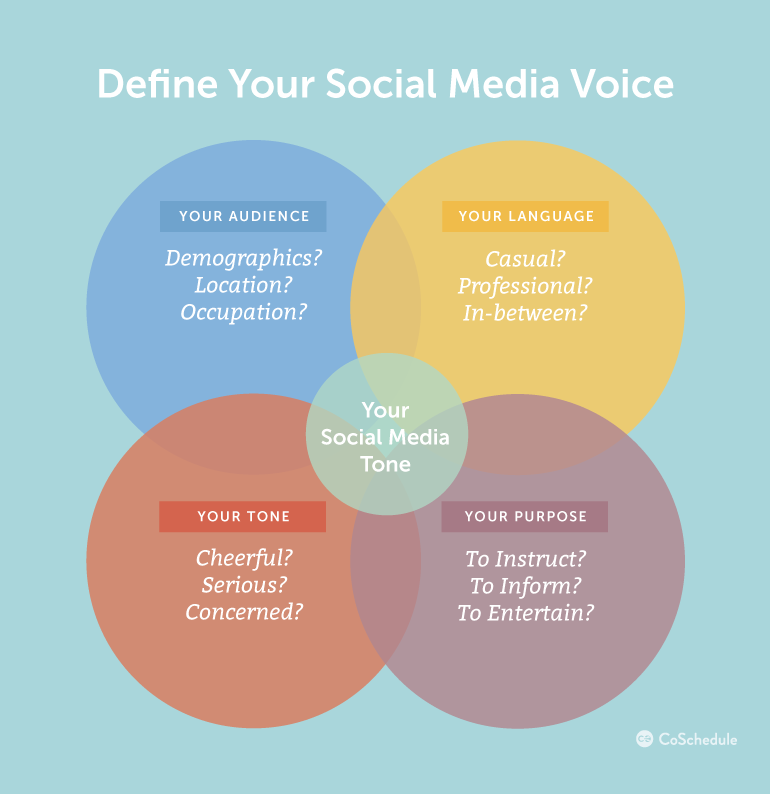 While experienced digital marketers know that social media is a small part of this type of marketing, the reason why social media marketing is central to young people is because that is how they interact with the world around them.
While experienced digital marketers know that social media is a small part of this type of marketing, the reason why social media marketing is central to young people is because that is how they interact with the world around them.
Same user experience across platforms
Another great benefit of social media for promoting your business is that the user interface of these networks is almost the same whether you use a laptop, tablet or smartphone. This is a huge advantage for entrepreneurs as they don't have to overspend on infrastructure they may not need. This leaves them with additional capital to use in other parts of their business.
Reach millennials through mobile devices
As millennials come of age and spend more on the best years of their lives, the travel industry is trying to take advantage of this opportunity. Although the mobile phone is a direct channel for connecting with the millennial audience, messaging is also of high importance. Therefore, marketers must adhere to very high standards of personalization and services.
Therefore, marketers must adhere to very high standards of personalization and services.
Inspired by these ideas, independent agency Proof Advertising partnered with AdTheorent to improve the performance of Travel Texas mobile video advertising. For Campaign 2019AdTheorent used the data to announce the creation of two custom 360-degree multimedia gyrosphere products - one for Millennials and one for Generation X. The campaign, which ran during the first half of the year from February to May, produced positive results. The level of involvement has grown, 4.5 times higher than the average. The company also saw a 38 percent conversion rate based on visits to TravelTexas.com's key pages.
Social networks. Career for introverts. How to gain credibility and get a well-deserved promotion
Social networks
Social networks offer great opportunities for expanding horizons without leaving your computer. Blogs, message boards, wikis, Yahoo groups, and Google groups allow other people to write and share their thoughts.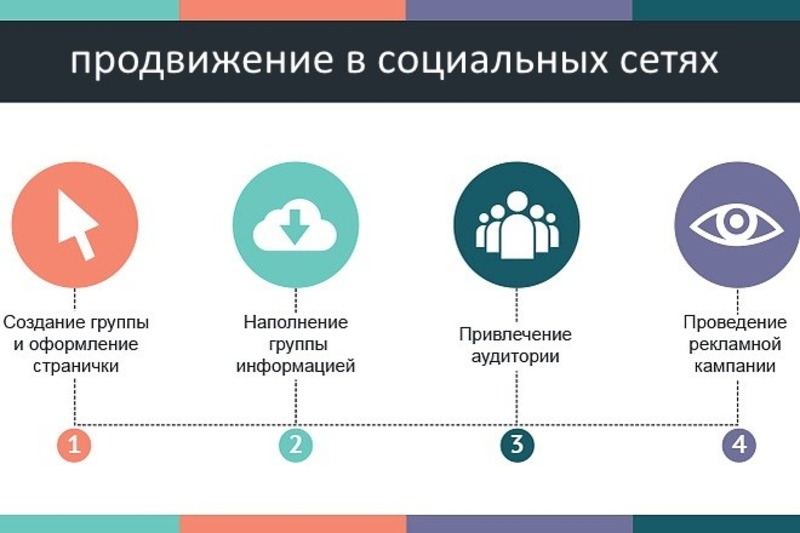 YouTube podcasts offer a message to a wider audience, while social networks like LinkedIn, Facebook, and Twitter offer information and updates. New sites can become popular almost instantly, so stay tuned.
YouTube podcasts offer a message to a wider audience, while social networks like LinkedIn, Facebook, and Twitter offer information and updates. New sites can become popular almost instantly, so stay tuned.
A little later we will discuss how to use social networks to increase popularity. In the meantime, to speed up the learning process, check out a fun and helpful YouTube video called LinkedIn in Plain English (the same ones exist for Twitter, wikis, and RSS).
Introverts and their communication tools
“Research shows that introverts are to blame for the emergence of online services, including blogs, social networks, and other user-generated resources,” says Ric Lavoie, Senior Communications Manager clients of the Internet marketing agency Critical Mass. Perhaps this is true. We prefer sitting with a keyboard to live communication. Online communication not only allows us to collect thoughts, edit them and share with someone at a convenient time for us, but also communicate with more people than during social events, job searches or even calling potential clients.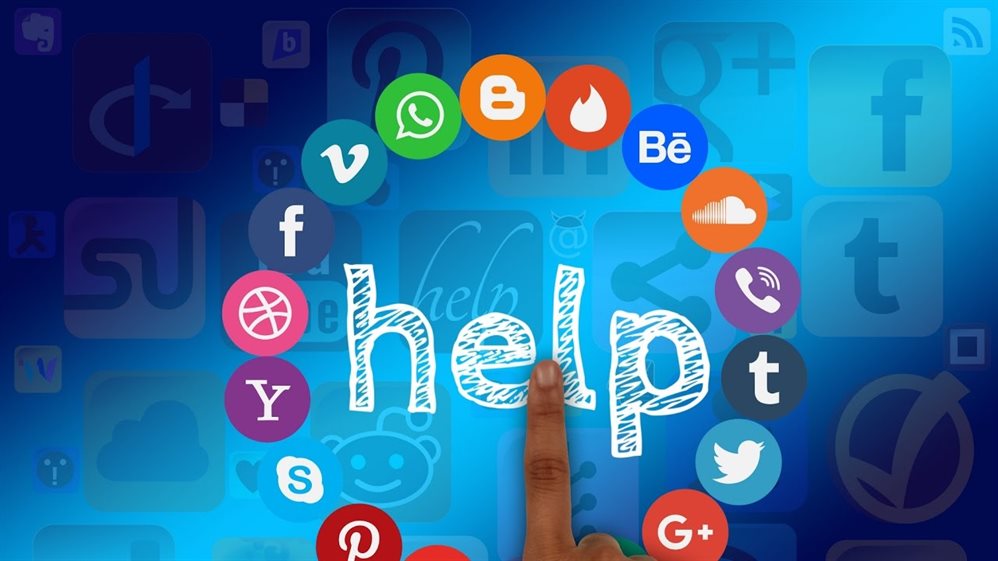 While face-to-face and online communication are not mutually exclusive, introverts find it easier to self-promote through digital resources.
While face-to-face and online communication are not mutually exclusive, introverts find it easier to self-promote through digital resources.
Which ones do you gravitate towards and which ones are you willing to use for a variety of communication needs? How about an audience? “Personal communication has become a curiosity,” says my client Genevieve Menard, an assistant to the head of an investment bank. – In my skyscraper office, every single day I run into lawyers, marketers and financiers of the highest rank. As soon as the office doors close behind them, they immediately plunge into their tablets and mobile phones with a busy look. Even their secretaries have a tablet! Almost every morning I enter a crowded elevator and am greeted with silence.” We are turning into a nation of button presses!
How to spread your message and make yourself known in social networks? “This is not about how to lure visitors to your site by any means. It is necessary to engage the audience in a dialogue through blogs, content creation on sites like YouTube and social networks like LinkedIn. The target audience will not only learn about you, but will also benefit from your advice,” says Lavoie. So, introverts, our time has come!
The target audience will not only learn about you, but will also benefit from your advice,” says Lavoie. So, introverts, our time has come!
Observers
As with traditional networking, consider who you want to be in the social networking arena. Creating an image of a professional on such sites gives an advantage when looking for a job. A nationwide survey of over 3,100 employers conducted by CareerBuilder.com found that 22% of recruiters use social media to learn more about candidates, and another 9% are going to do it; 24% of recruiters studying social media found information that strengthened their decision to hire a candidate, and 34% after studying the profile on the network were forced to refuse this candidacy. The list of questionable aspects included information about addiction to alcohol or drugs (41%), posting provocative or inappropriate information or photos (40%), demonstrating poor communication skills (29%), bad reviews about the previous company and colleagues (28%), lies about skill levels (27%) and comments that discriminate on the basis of race, gender and religion (22%).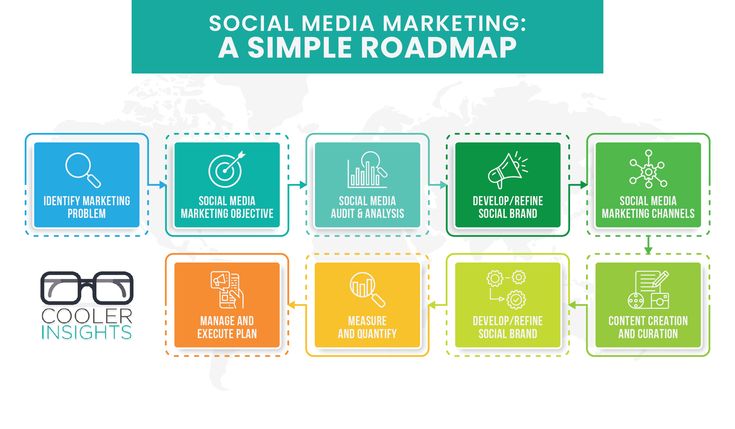 Other negative qualities include: using an unprofessional nickname, breaking the law and posting confidential information about previous employers 3 . Can you imagine?
Other negative qualities include: using an unprofessional nickname, breaking the law and posting confidential information about previous employers 3 . Can you imagine?
Now it's clear why sites like LinkedIn need to present themselves in the best possible light. So how do you help recruiters and executives (27% of LinkedIn visitors) and potential clients find you 4 ? Peter Engel, senior recruiter at PR firm Cantor Executive Search Solutions, is very pleased with LinkedIn, which keeps him up-to-date on candidates. He usually uses keywords when searching, for example: social networks, healthcare, B2B, reputation crisis protection, author, agency, broadcast.
“LinkedIn helps me connect with potential candidates. For example, if I am looking for a candidate and I see that he has 50 friends, it is likely that 5% of them I either know personally or know their reputation. If I see Jane Smith from XYZ agency on LinkedIn, I think, “Yeah, I remember her.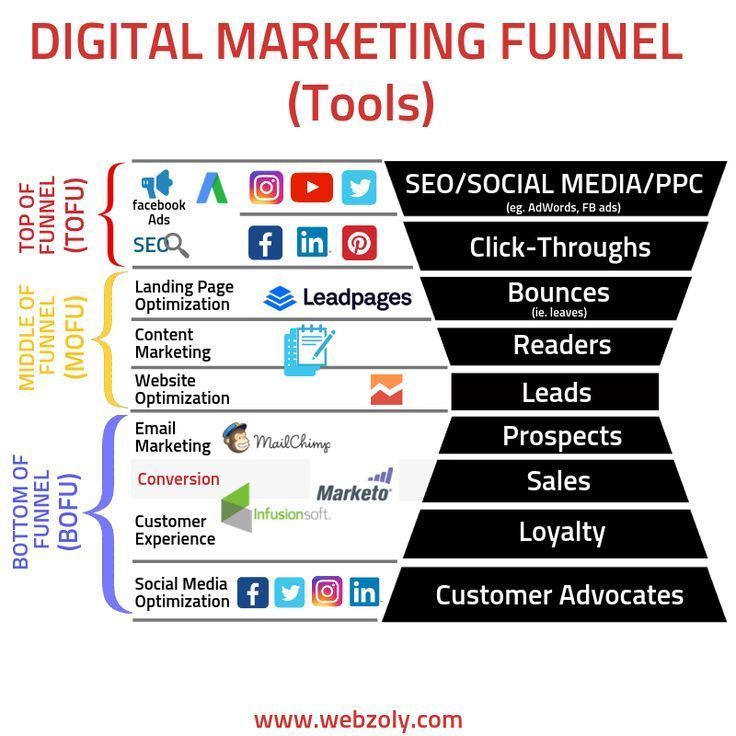 Is she still there? Then I write to Jane and make inquiries. Soon I will find out if Jane is working, looking for a job and if she is interested in a position that I can offer her. Even if she is not looking for a job, I keep in touch with her and add her updated resume to my database. If Jane is looking for a job in a few months, I'll be the first to think of her. So everyone wins."
Is she still there? Then I write to Jane and make inquiries. Soon I will find out if Jane is working, looking for a job and if she is interested in a position that I can offer her. Even if she is not looking for a job, I keep in touch with her and add her updated resume to my database. If Jane is looking for a job in a few months, I'll be the first to think of her. So everyone wins."
LinkedIn is also a useful tool for gathering information about a company in order to find out who in your professional network has acquaintances in it. Long live new acquaintances!
Online networking
Howard Greenstein, social media strategist and promoter, president of the Harbrooke Group consulting agency, talks about how to use social media to increase popularity and build a network of contacts: “Social media allows you to connect with people with whom you studied or worked together. They usually notify you of the presence on the site of employees of companies listed by you in the “Job Details” section.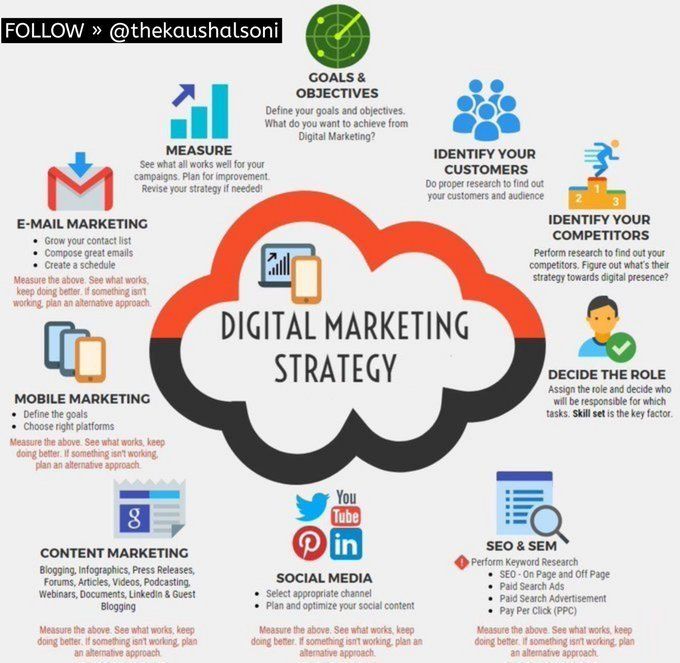 These people see what you've been up to and track changes in your work status.
These people see what you've been up to and track changes in your work status.
If you've gone from assistant to vice president, the site will let your friends know, and they can respond and write to you,” Greenstein cites the example. - That is, professional recognition is formed here. Another great benefit is that you can email your friends questions that interest you. And also answer questions from other users. If your answers are worthy of attention, they will be appreciated. The more people who rate your responses on a particular topic, the more likely you are to receive some sort of hallmark of expertise in that particular area. To get recognition, it is enough just to participate in communication on professional topics. In social networks, you can find both work and new opportunities.
Advice for social networking newbies
Grinstein gives advice for anyone who has never been a social network user: “For social networking, ask friends or techies.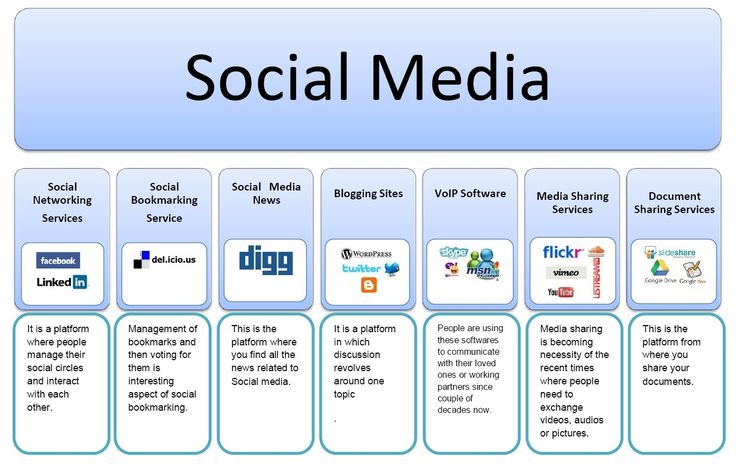 Ask them to invite you as a friend. In this way, you will gradually build your network and get used to the site. Read the "Help" section carefully. These sites usually have blogs that tell you what the company is working on and what tools it plans to add.”
Ask them to invite you as a friend. In this way, you will gradually build your network and get used to the site. Read the "Help" section carefully. These sites usually have blogs that tell you what the company is working on and what tools it plans to add.”
As much as I love the endless possibilities of the web, I have mixed feelings about social media. I am no longer active on social networks, because I am very secretive by nature and would not like to reveal the names of my friends to everyone. If someone I know invites me to join, I agree. However, I no longer invite people to be my friends, especially clients who do not want to let the world know that they are working with a coach. If you feel the same way, try expanding your network through other online opportunities such as blogs and podcasts, which we discuss with Greenstein below.
Blogging
“I admire how blogging has changed the way we communicate. Bloggers, news media, and even large corporations now communicate informally and regularly with their subscribers, exclaims Greenstein.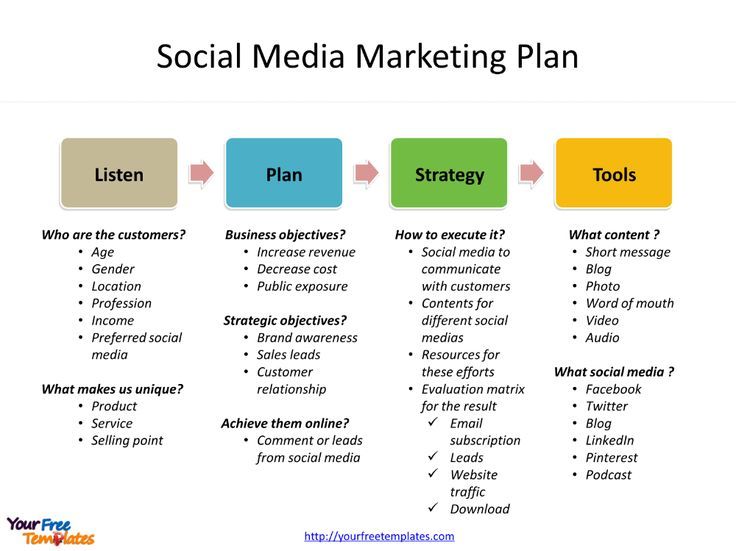 – A huge advantage of a blog is the ability to comment in an interactive format. Comprehensive communication forms a certain community. Blogs notify other sites, especially search engines, of new content. After posting your comment, the blog program sends a message to Google, Yahoo! and other search engines. After 10–15 minutes, new content is indexed and becomes searchable. You have the opportunity to express your opinion and express yourself, especially if you work in a small or medium-sized business.”
– A huge advantage of a blog is the ability to comment in an interactive format. Comprehensive communication forms a certain community. Blogs notify other sites, especially search engines, of new content. After posting your comment, the blog program sends a message to Google, Yahoo! and other search engines. After 10–15 minutes, new content is indexed and becomes searchable. You have the opportunity to express your opinion and express yourself, especially if you work in a small or medium-sized business.”
Senya Meiming, publisher and editor-in-chief of the daily news site PositivePsychologyNews, adds, “Of our more than thirty writers, about a quarter blog and publish newsletters. For an introvert, a blog is convenient because it allows you to choose the conditions and time of communication and at the same time not depend on readers. You alone are responsible for your schedule. Only you decide what time of day to chat. (I like that now anyone can become a citizen journalist.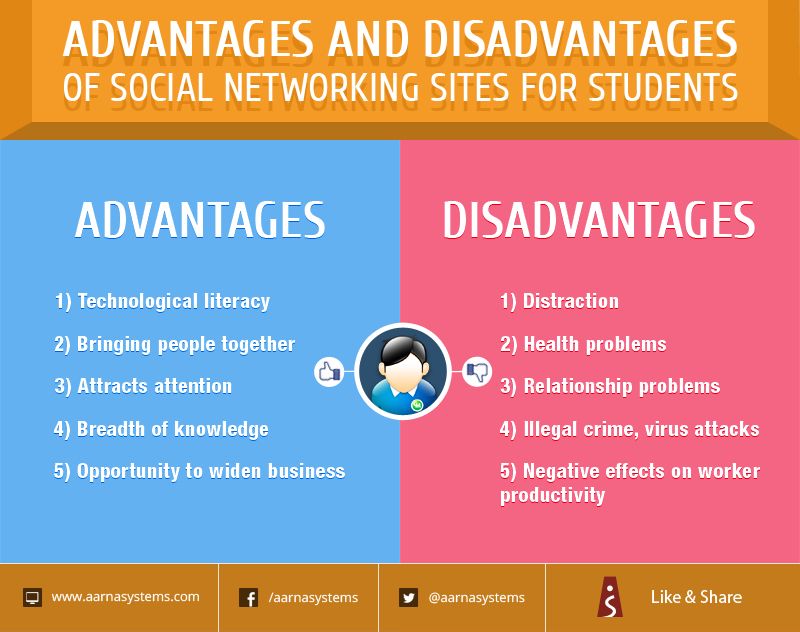 The disadvantage of the blogosphere is that the quality of information is not high enough. However, the same can be said about traditional media.)
The disadvantage of the blogosphere is that the quality of information is not high enough. However, the same can be said about traditional media.)
Grinshtein talks about the benefits for the blogger: “You can grow your business with a blog by communicating your goals, business methods, customer approach, offering customer testimonials and product stories. Almost all companies have websites, but they are static, like advertising brochures. Since they are rarely updated, there is almost no reason for customers to visit them again. Whereas the content of the blog is constantly changing.” Greenstein also recommended useful blogging books: Talk Over Money[17] by Robert Scoble and Shel Israel and Now Is Gone by Jeff Livingston and Brian Solis.
Podcasts
If you prefer talking to writing, podcasts are the easiest way to get your message across. If you've heard of podcasts, but still don't really know what they are, let's turn to Greenstein again: “A podcast is an electronic media file hosted on the Internet that can be listened to on a portable media player or personal computer.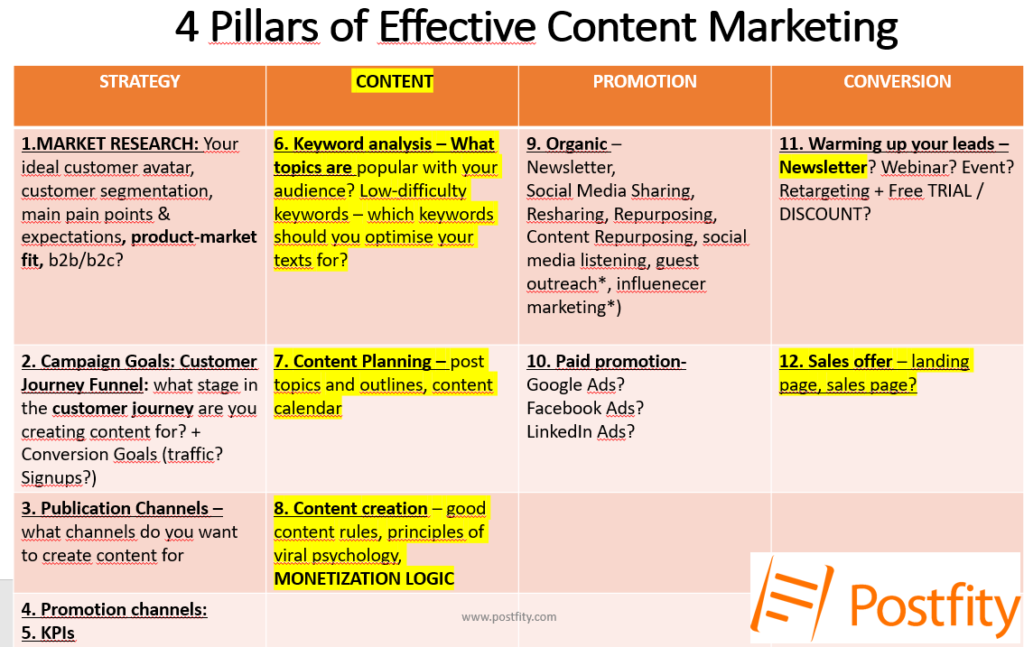 It is essentially a radio program posted online by an amateur or professional. The difference between a podcast and an audio download is that you can subscribe to a podcast, and once updated, it will automatically appear in your computer's playlist. We use the word "subscription" as in the case of a magazine, but usually podcasts are distributed free of charge.
It is essentially a radio program posted online by an amateur or professional. The difference between a podcast and an audio download is that you can subscribe to a podcast, and once updated, it will automatically appear in your computer's playlist. We use the word "subscription" as in the case of a magazine, but usually podcasts are distributed free of charge.
Audio podcasts can sound quite professional, especially when recorded on a $70 microphone, Greenstein notes. – Most services host podcasts for free, but they insert ads at the beginning and end of the recording as compensation. Some services host podcasts for a fixed monthly fee. The Blog Talk Radio resource allows you to create a podcast on your mobile phone.” Some people who aspire to fame go even further and post their videos on YouTube. Greenstein warns that videocasts are not easy to create. Without thorough preparation, they look unprofessional. “To learn more about podcasts,” Greenstein continues, “attend Podcamp events—free or low-cost conferences held around the world (www.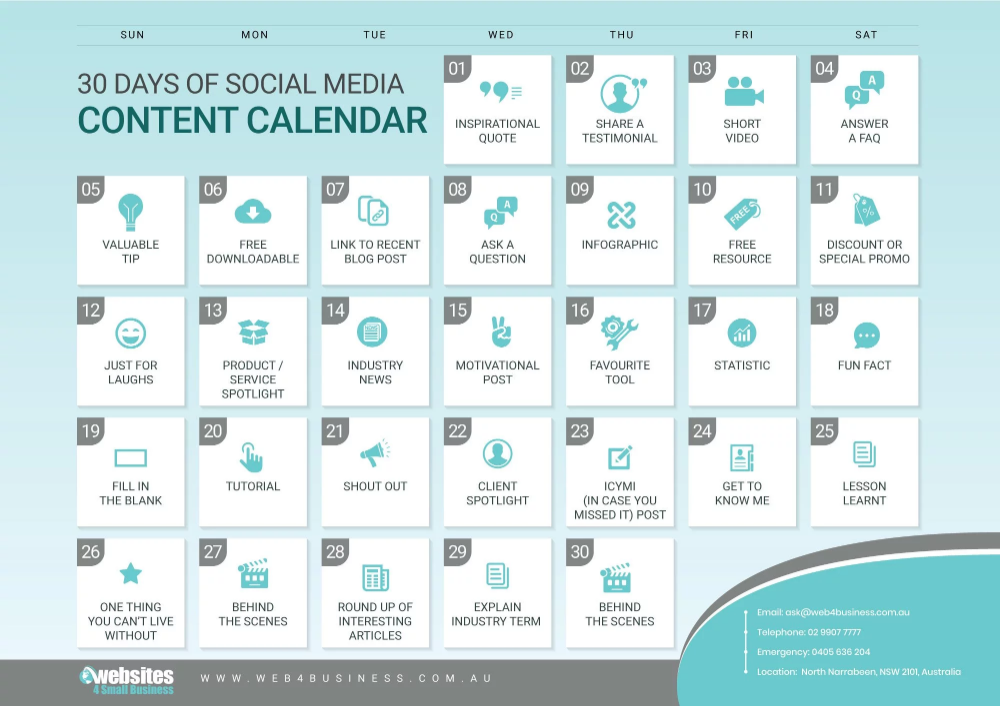 podcamp.org)—or read the book Tricks of the Podcasting Masters. Rob Walsh and Moore Lafferty.
podcamp.org)—or read the book Tricks of the Podcasting Masters. Rob Walsh and Moore Lafferty.
The ability to look inward and concentrate before starting work, which we introverts seem so natural to us, is of great importance in building a successful career. In this chapter, you set your self-promotion goals, created your marketing mix and activities to achieve your goals, and created or considered (if you don't like to plan) a personal strategy that will make the most of your time and money. Now you won't say "Mission Impossible" because you have the tools to create your own empire (or are just ready to make a couple of calls).
Now we come to chapter 4. Imagine that someone is trying to sell you the best ham on the planet even though you are a vegetarian. Or forces you to join the parent committee, although you do not have children. In self-promotion, as in sales, there are always two parties involved, which for simplicity we will call the buyer and the seller. You will be able to avoid throwing and guessing if you study your target audience, that is, the people who should be interested in your offer.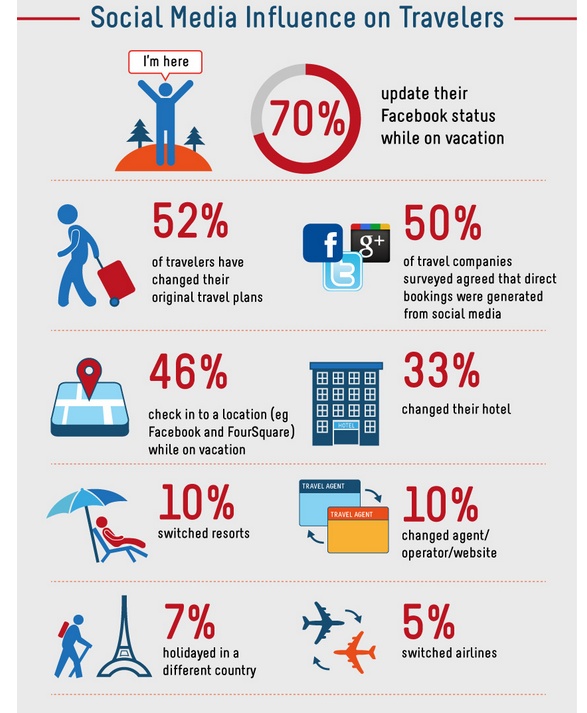 As always, we will look within ourselves and think about how to use our hidden virtues. I hope you enjoy being a pioneer. Ready?
As always, we will look within ourselves and think about how to use our hidden virtues. I hope you enjoy being a pioneer. Ready?
Chapter 9 E-mail. File organization. Social networks
Chapter 9 Email. File organization. Social media Modern programming is an arena of intense competition between software developers creating ever greater and fool-proof programs, and the Universe producing ever greater0003
Social networks: what do I expect from them?
Social networks: what do I expect from them? A social networking site is a website, a virtual online community, either for those with common interests or for people who want to socialize but are separated by great distances. Each such site assumes a fixed membership
Active social networks
Active social networks Tracking and accounting is only one side of the coin.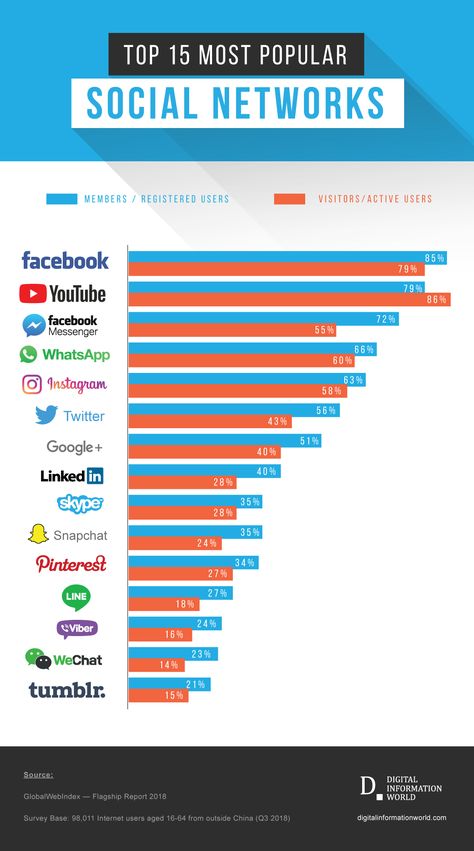 In addition to passive collection of information, an active principle is needed - a platform for joint decision-making and coordination of actions. A series of Arab "Twitter revolutions" is the first bell. Bye
In addition to passive collection of information, an active principle is needed - a platform for joint decision-making and coordination of actions. A series of Arab "Twitter revolutions" is the first bell. Bye
5. Social networks
5. Social networks Elena Yanina: As mentioned earlier, if possible, you should use all possible methods in promotion. However, with regard to promotion in social networks, this issue should be taken very carefully, because this environment can be
12.2. Create social networks
12.2. Create social networks The crisis degradation of the service sector and the increase in the “price of error” (if only due to a decrease in income) forces us to intensify our efforts to find reliable, conscientious sellers of goods and services and to receive timely
SOCIAL INNOVATION
SOCIAL INNOVATION Not so long ago, new opportunities for interpersonal communications appeared in Russia. It would seem that in the age of the Internet, relations between people are becoming more and more ghostly, "virtualizing". However, the reality turned out to be quite different.
It would seem that in the age of the Internet, relations between people are becoming more and more ghostly, "virtualizing". However, the reality turned out to be quite different.
4.3.3 Social reforms
4.3.3 Social reforms In order to improve the efficiency of work in social sectors that are still weakly affected by the transformation, and ensure their development while reducing the financial burden on the economy, reforms are required: • in the field of labor relations from
SOCIAL ACTIONS AND SOCIAL RELATIONS
SOCIAL ACTION AND SOCIAL RELATIONSHIPS Just about the art of management From disorder and a strong army dies. (Folk wisdom) Any organization is an ordered purposeful joint activity of a group of people. Effective such
Does your business need websites, blogs or social networks?
Does your business need websites, blogs or social networks? If you ask the opinion of a web designer, you will get a resounding “yes!” in response.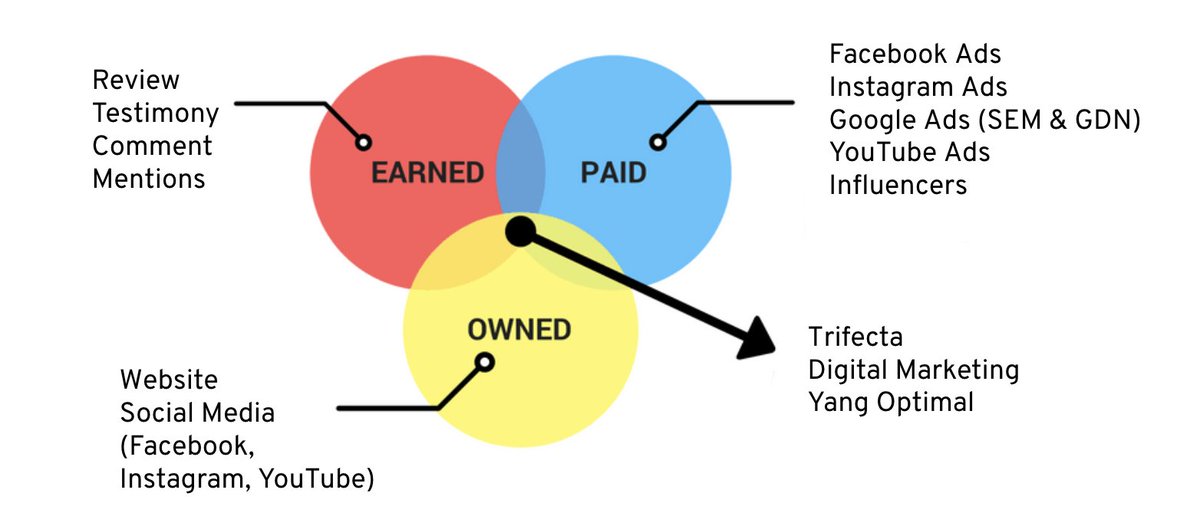 And the addition: “We can do everything for you for such and such a price!” My opinion is not so unambiguous. Sites, blogs and pages in social networks are many
And the addition: “We can do everything for you for such and such a price!” My opinion is not so unambiguous. Sites, blogs and pages in social networks are many
24. At the start, social networks or just connections can be one of the resources. How to use them with maximum effect?
24. At the start, one of the resources can be social networks or just connections. How to use them with maximum effect? This is almost the main resource! Shovel your business card, see who and how can help you at the start. This advice is not just for marketers.[6]
Social networks are (no longer) important. Social business is important
Social media is (no longer) important. Social business is important We live in a unique era. We are not only witnessing a revolution in business, the likes of which we are unlikely to see again in our lives.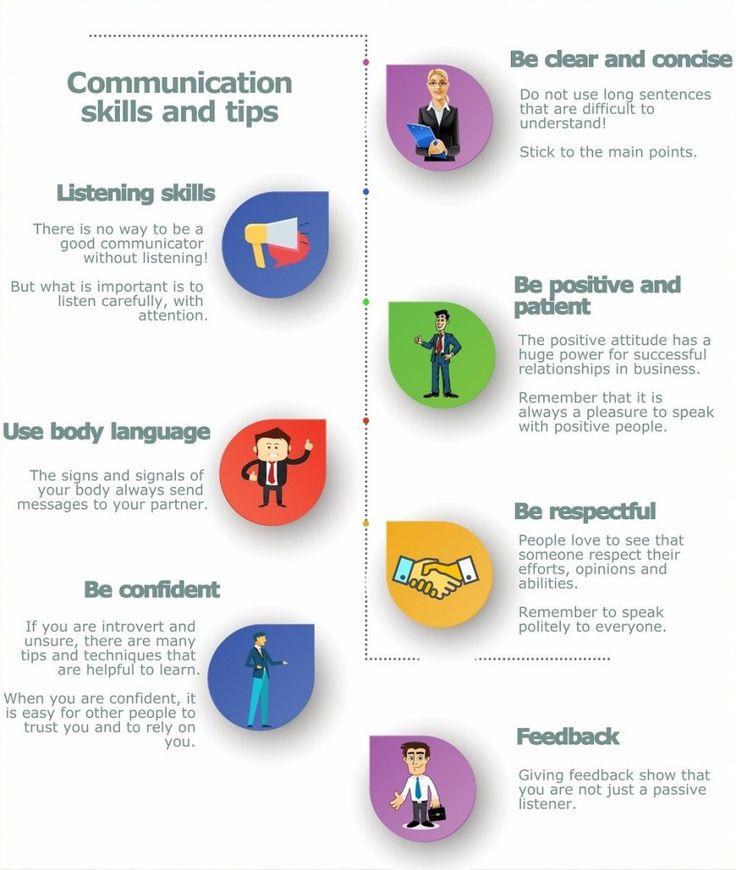 It is up to us to either take advantage of new opportunities and capitalize on them, or
It is up to us to either take advantage of new opportunities and capitalize on them, or
Part V. Conquer social networks
Part V. Conquer Social Media 29. Come up with killer social media templates The LAST thing I want in this life is to be called a social media expert. Exactly. It's not me and it's not my job. Actually, I'm a fan of social networks. I love them.
Collaboration software and social networks
Collaboration software and social networks Throughout the 1990s, I worked on the Groupware Users project with the Palo Alto Institute for the Future, an organization dedicated to predicting the future of the world. The ideas of the project gave quite tangible results.
Social networks
Social media In social networks ("VKontakte", Facebook, Twitter) you can post a news or event message, and you should also add social network buttons on your site.